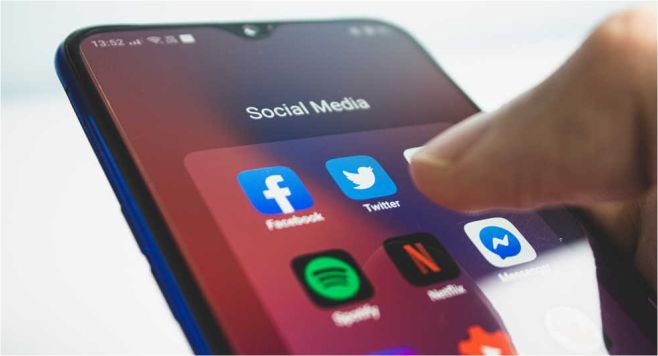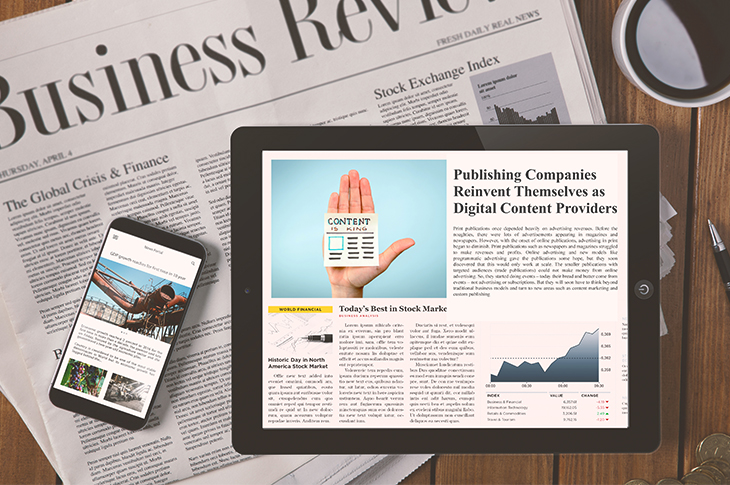GUEST COLUMN: A legal overview of India’s new digital content norms
By Kaushik Moitra & Unmekh Padmabhushan
The Information Technology (Intermediary Guidelines and Digital Media Ethics Code) Rules, 2021 (Rules) were notified on 25 February 2021 in supersession of the Information Technology (Intermediaries Guidelines) Rules, 2011. The Rules regulate intermediaries, publishers of online curated content (OCC), and digital news and current affairs and, amongst others, introduce due diligence obligations on intermediaries and a code of ethics for publishers.
Intermediaries
 Intermediaries will be regulated by the Ministry of Electronics and Information Technology, and are required to inform their users: (i) periodically (and, in any event, at least once a year) that violation of the Rules will lead to termination of services; (ii) of the privacy policy, rules regulations and user agreements once every year; and (iii) of any changes to the policies, rules, regulations and user agreements.
Intermediaries will be regulated by the Ministry of Electronics and Information Technology, and are required to inform their users: (i) periodically (and, in any event, at least once a year) that violation of the Rules will lead to termination of services; (ii) of the privacy policy, rules regulations and user agreements once every year; and (iii) of any changes to the policies, rules, regulations and user agreements.
Every intermediary must establish a grievance mechanism headed by a grievance officer to redress violations of the Rules or any other matters pertaining to the computer resources made available by the intermediary including the display, modification, publication, etc. of certain prohibited content (such as disinformation and obscene, libellous, defamatory content) under the Rules.
Additionally, intermediaries must:
- within 72 hours of receiving an order from a court or government authority, provide such information (under their control or possession) or assistance to the authorised government agency as required; and
- maintain user information for 180 days (or such longer period as requested by a government authority) after the deletion of a user’s account.
Significant Social Media Intermediaries (Significant Intermediaries)
 Significant Intermediaries (i.e. social media intermediaries with over 50,00,000 users) are subject to additional compliances. In addition to a resident Indian grievance officer, they must appoint: (i) a Chief Compliance Officer (being a key managerial personnel or other senior employee), liable for failures to comply with the Information Technology Act, 2000 (IT Act) or the Rules; and (ii) a nodal officer to liaise with law enforcement. Significant Intermediaries must also institute a dispute resolution processes under the supervision of the grievance officers and offer a voluntary user verification mechanism.
Significant Intermediaries (i.e. social media intermediaries with over 50,00,000 users) are subject to additional compliances. In addition to a resident Indian grievance officer, they must appoint: (i) a Chief Compliance Officer (being a key managerial personnel or other senior employee), liable for failures to comply with the Information Technology Act, 2000 (IT Act) or the Rules; and (ii) a nodal officer to liaise with law enforcement. Significant Intermediaries must also institute a dispute resolution processes under the supervision of the grievance officers and offer a voluntary user verification mechanism.
Significant Intermediaries who primarily provide messaging services are required to ensure that the first disseminator of any information is traceable, and they may be ordered to divulge the identity of such person in case of offences such as the commission or incitement of
offences punishable with imprisonment for 5 or more years which are related to the sovereignty and integrity of India, the security of the State, sexually explicit material.
Through automated tools, etc., Significant Intermediaries must proactively identify information that depicts any act or simulation depicting rape, child sexual abuse or other prohibited conduct. They must publish a report detailing complaints received, action taken, and the number of communication links or parts of information that they have removed or disabled access to.
Publishers
Code of Ethics
Publishers of digital news and current affairs and OCC (Publishers) must comply with the Code of Ethics and Procedures in Relation to Digital Media prescribed by the Rules (Code).
Every Publisher of digital news and current affairs must follow the Norms of Journalistic Conduct of the Press Council of India, and the Programme Code under the Cable Television Networks Regulation. OCC Publishers must classify their content into the various categories and follow the content related guidelines prescribed under the Rules.
Grievance Redressal
The Rules prescribe a three-tier regulatory mechanism to ensure compliance with the Code:
- Level I: Every Publisher must: (i) establish an internal grievance redressal mechanism to be overseen by its grievance officer; and (ii) publish a monthly report of grievances received and actions taken.
- Level II: Every Publisher must join a self-regulating body that is registered on the grievance portal of the Ministry of Information and Broadcasting (MIB). The body will oversee compliance by its members with the Rules and address: (i) complaints that a member fails to address within 15 days; and (ii) appeals against decisions of a member.
- Level III: The MIB will establish an oversight mechanism, which will include a grievance portal for complaints under the Rules. Complaints received from the portal and appeals from the decisions of the self-regulatory bodies will be heard by an interdepartmental committee (Committee) headed by an authorised officer (AO) appointed by the MIB.
Powers of the Committee
The Committee may issue orders and guidelines to Publishers. Where the Rules have been contravened, the Committee may impose sanctions (e.g. directing that a disclaimer or warning is issued by the content provider).
Blocking Orders
The Secretary of the MIB may, on the recommendation of the AO, issue interim blocking orders against Publishers and intermediaries (for removal of content) under Section 69A(1) of the IT Act. Within 48 hours, the Committee must review and recommend whether a final blocking order should be issued.
Publishers of News Content
Publishers of digital news and current affairs content (online papers, news portals, news aggregators, news agencies and entities that are functionally similar to publishers of news) are also required to furnish necessary information required by the MIB to enable communication and co-ordination.
Key Takeaways
Publishers and intermediaries regulated by the Rules may need to significantly alter their business to comply with the Rules. Significant Intermediaries will need to set up a compliant grievance redressal mechanism in accordance with the Rules and appoint grievance, chief compliance, and nodal officers.
They must also mandatorily provide a voluntary user verification system. Significant Intermediaries will need to undertake considerable expense to use technology-based tools to monitor the use of prohibited content.
By mandating that the first disseminator of a message be traceable, the Rules have effectively outlawed security features like end-to end encryption for messaging platforms. They will have a detrimental effect on individuals’ data privacy, and their right to privacy under Article 21 of the Constitution of India.
The Rules have now levelled the playing field by requiring Publishers to comply with a similar regulatory regime as that governing conventional news, film, and television.
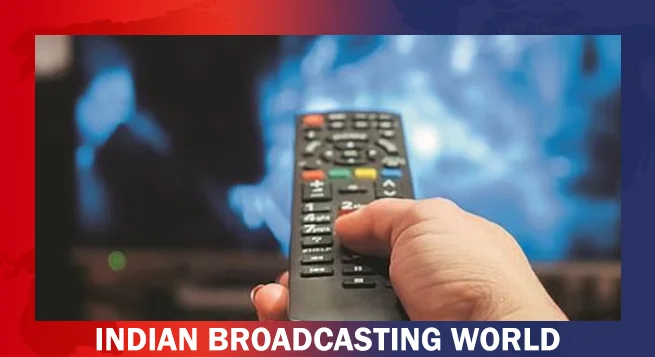 SC tells petitioner to take plea on OTT platforms to govt.
SC tells petitioner to take plea on OTT platforms to govt.  Network18 TV news biz revenue up 28% in Q4 FY24
Network18 TV news biz revenue up 28% in Q4 FY24 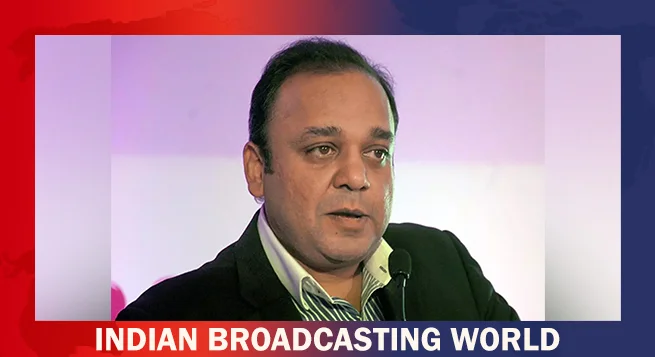 As Zee gets lean, Punit Goenka in charge of critical verticals
As Zee gets lean, Punit Goenka in charge of critical verticals 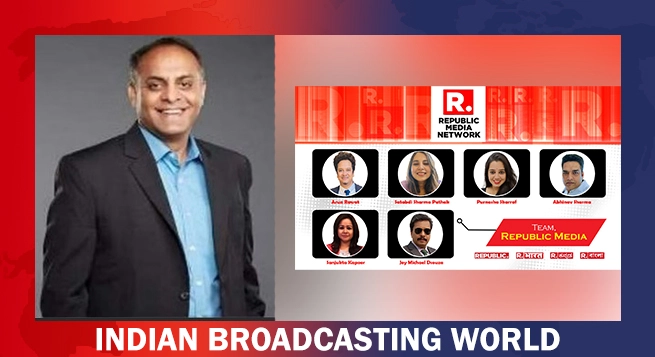 Republic Media Network announces strategic expansion in top management
Republic Media Network announces strategic expansion in top management  Jogi’ wins hearts with its soulful sufi rendition
Jogi’ wins hearts with its soulful sufi rendition 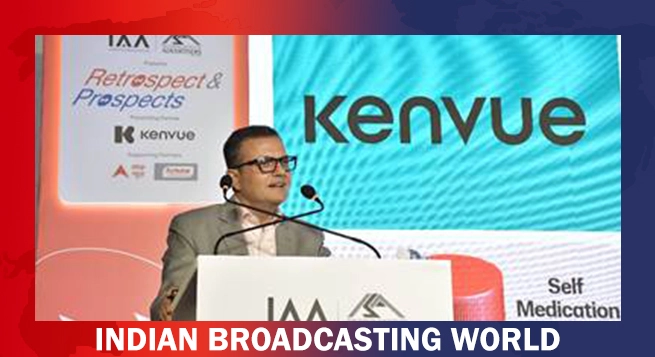 IAA & ISA host retrospect and prospects event featuring Manish Anandani, managing director of Kenvue
IAA & ISA host retrospect and prospects event featuring Manish Anandani, managing director of Kenvue 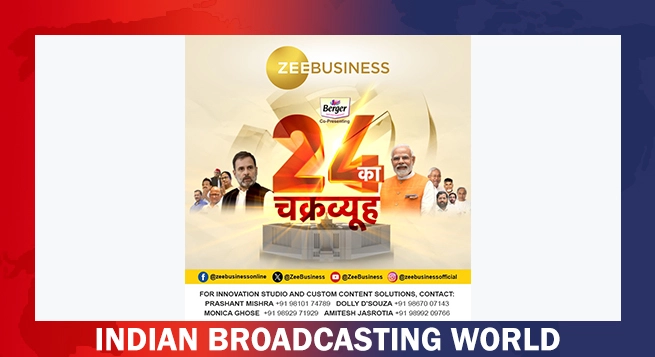 Zee Business empowers investors to navigate election season with confidence
Zee Business empowers investors to navigate election season with confidence 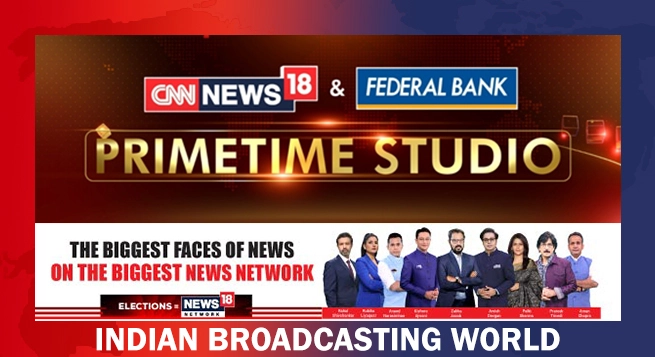 CNN-News18 & Federal Bank collaborate to launch prime time studio, redefining news broadcasting
CNN-News18 & Federal Bank collaborate to launch prime time studio, redefining news broadcasting 

